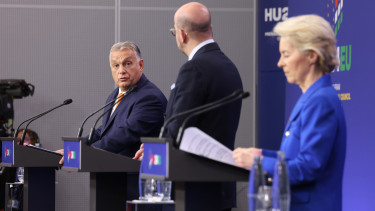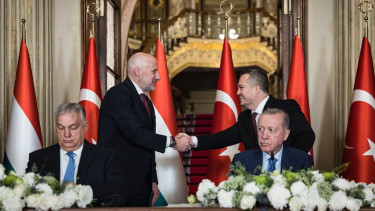Economy
A lot of Hungarians could be using mobile wallets a year from now
Lajos Bartha stressed that the central bank will be “breathing down the neck" of commercial banks until the targeted deadline to make sure everything is ready for launch.
Highlights of Portfolio’s Financial IT 2017 conference:
Highlights of Portfolio’s Financial IT 2017 conference:
- MNB plans the launch of the instant bank transfer system for 1 July 2019. The service will be available 24/7, all year round. Bank transfers of up to HUF 10 million in value may be carried out within five seconds, i.e. the time between wiring and receiving the funds will take that long.
- It will not be necessary in every even to remember the account number. A mobile number, an e-mail address and a tax ID number will do initially. The central bank plans to introduce additional secondary identification tools.
- The MNB believes that doubling the number of payment transactions from the current 870 million annually is a realistic estimate for the medium term.
- Plastic cards will slowly disappear from the Hungarian market within five to ten years, experts agreed. They believe smartphones will be taking their place. The instant bank transfer system could bring about a breakthrough in this respect.
- PSD2 (Revised Payment Service Directive) that will change banking as we know it, creates an opportunity mostly for smaller banks planning customer acquisition, whereas larger banks tend to see it as a threat.
- Endre Eölyüs, Country Manager for Hungary and Slovenia at Mastercard, also believes bank cards will be crowded out significantly within 5-10 years by smartphones, but he also thinks that the infrastructures for plastics and instant transfers could coexist.
- Erste Bank Chief Operating Officer Tamás Foltányi also gives plastic cards another five to ten years, but he does not think the new payment methods will kill the existing ones immediately.
- László Szetnics, Regional Manager of Mobile Payment Services at MasterCard Europe, believes that a year from now a lot of Hungarians will have a mobile wallet on them that could be used as a high-security payment tool both in physical and online stores.









